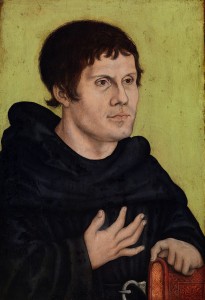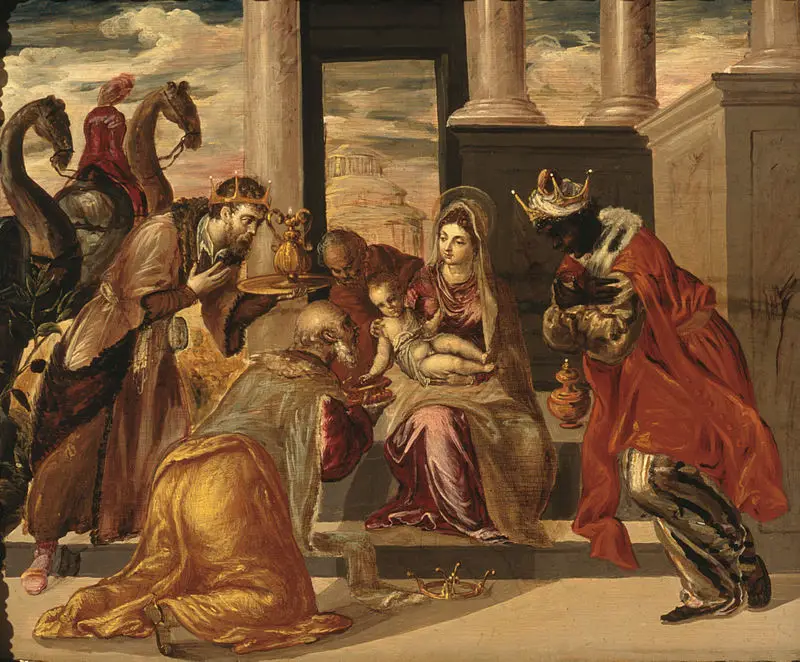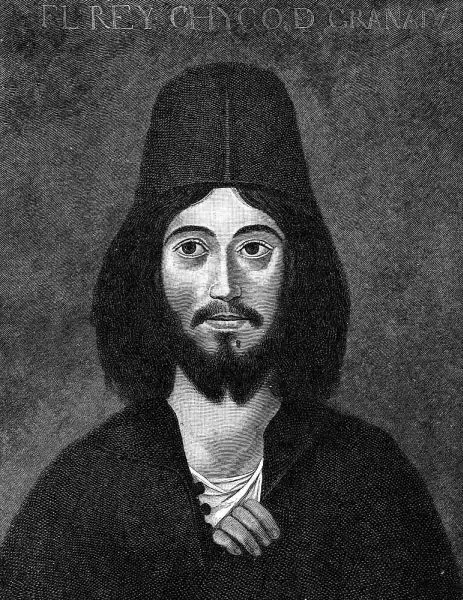 On 3rd January 1521, Pope Leo X issued the papal bull Decet Romanum Pontificem which excommunicated Martin Luther from the Catholic Church. Martin Luther was a German priest, professor of theology and most famously a reformer. His life and his beliefs changed the face of religion throughout Europe and saw many people break with the Catholic Church in the 16th century.
On 3rd January 1521, Pope Leo X issued the papal bull Decet Romanum Pontificem which excommunicated Martin Luther from the Catholic Church. Martin Luther was a German priest, professor of theology and most famously a reformer. His life and his beliefs changed the face of religion throughout Europe and saw many people break with the Catholic Church in the 16th century.
Martin Luther was born on 10th November 1483 in Eisleben, Saxony (part of the Holy Roman Empire at the time), to Hans and Margarethe Luther. The following year Hans moved his family to Mansfeld where he owned a series of mines and smelters. At the age of seven, Luther started at Mansfeld School. At the age of fourteen, Luther went to Magdeburg before returning to Eisleben to complete his studies in grammar, rhetoric and logic. It is reported that Luther hated his time studying at Eisleben. At the age of nineteen Luther attended the University of Erfurt where he received his master’s degree in 1505.
While destined to be a lawyer, Luther had a life changing experience in 1505 that would set him on the path to become a monk. On 2nd July 1505 Luther was caught in a terrible lightning storm while returning to University. He was so fearful for his life that he cried out to St Anne to help him and that if she did then he would become a monk. Soon the storm subsided and Luther took this as a sign that he was destined for the religious life. A short time later, on 17th July, Luther entered the Augustinian friary to become a monk.
Luther’s early years as a monk were not as enlightening as he hoped and he felt that he had lost touch with Christ. His mentor Johann von Staupitz encouraged Luther to look to Christ for his enlightenment. In 1507, Luther was ordained to the priesthood and in 1508 he was encouraged by von Staupitz to teach theology at the University of Wittenberg. Luther received his Bachelor's degree in Biblical Studies on 9th March 1508 and then his Bachelor's degree in the Sentences in 1509. On the 19th October 1512, Luther was awarded his Doctorate of Theology and then on 21st he was granted the position of "Doctor in Bible" at the University of Wittenberg.
Through his study of the Bible and a visit to Rome in 1510, Luther started to become disillusioned with the Catholic Church and its teachings. He came across an interesting passage in the Bible which stated that "the just will live by faith". This started Luther thinking about what the Catholic Church taught and the rules it imposed upon people compared to the word of the Bible.
In 1517 Pope Leo X introduced a new round of indulgences to help raise money to rebuild St. Peter’s Basilica in Rome. These indulgences were payments that even the poorest people had to pay as the Catholic faith taught the importance of charitable works as a means of gaining entry to heaven. Luther strongly objected to the idea that good works absolved people of their sins and this led to the writing of his famous thesis.
On 3rd October 1517, Martin Luther pinned his Ninety Five Thesis (Full Name: The Ninety-Five Theses on the Power and Efficacy of Indulgences or Disputatio pro declaratione virtutis indulgentiarum) to the church door at the University of Wittenberg. In his thesis Luther attacked the Catholic concept of salvation through good deeds and argued that the way to salvation was through Christ by faith and repentance. He argued that true repentance was through the way a person lived their life and not simply through confession. He also attacked the sale of indulgences and emphasised that the Pope had limited powers upon earth.
With the aid of the printing press, Luther’s thesis quickly spread throughout Europe and soon came to the attention of Pope Leo X. The Pope initially treaded carefully with Luther, sending representatives to try to persuade him from his beliefs, but this only saw Luther become more determined.
In October 1518 Luther was called to an Imperial diet in Augsburg where he was examined by Cardinal Thomas Cajetan. Here, Luther was ordered to recant his thesis but he strongly refused, stating that he would only recant if scripture proved him wrong. He then stated that the Pope did not have the authority to interpret the Bible. The meeting eventually broke down and Luther was to become an enemy of the Catholic Church.
After the meeting, Luther returned to the University of Wittenberg where he continued to teach. On 15th June 1520, Pope Leo X issued a letter threatening to excommunicate Luther. In response it is said that Luther burned the letter!
The following year, on 3rd January, Pope Leo X issued the papal bull Decet Romanum Pontificem which finally excommunicated Martin Luther from the Catholic Church. In March of the same year Luther was summoned before the Diet of Worms, an assembly of secular authorities. It was named as such because it was held in Worms, a town on the upper Rhine. The Diet went from 28th January to 25th May 1521 and was presided over by Emperor Charles V. Luther was once again ordered to recant his thesis but again refused. He demanded to be shown in the scriptures where it stated that his beliefs were wrong. On the 25th May 1521, the council released the Edict of Worms which banned Luther’s writings and declared him a heretic. Luther was now a wanted man.
Luther quickly escaped and went to live at Wartburg Castle at Eisenach. Here, he translated the New Testament from Greek to German as well as continuing to study the scriptures and write. On 6th March 1522, Luther returned to Wittenberg University where he began to work with those around him to create a new church based on the ideas of Lutheranism. Luther quickly began to gain followers of his new Church and his ideas and beliefs soon spread to the German Princes of the time.
In 1524, Luther married Katherina von Bora, a former nun who had left her convent to live at Wittenberg. Luther’s act of marriage set a standard for clerical marriage which was banned by the Catholic Church. Together Luther and Katharina had six children.
Luther settled down with his family to work upon his new church and to continue to teach theology at the University of Wittenberg. In the final years of his life Luther suffered from several illnesses including heart problems, arthritis and a cataract in one eye. He also had to ensure the stress of being a branded a heretic.
Martin Luther died on 18th February 1546 after some heart problems. He was buried in the Castle Church at Wittenberg.
Luther’s beliefs about the practices of the Catholic Church, in conjunction with his public writing of the “Ninety Five Thesis”, sent fractures throughout the Church and laid the foundations for the Protestant Reformation. Luther sought for the people of the age to have a different and closer relationship with Christ and taught that salvation could only be given by God, rather than being granted through good works. Martin Luther’s writings and ideas had such a huge impact upon the people and the Church that they can still be seen and felt throughout the world today.
If you're interested in Martin Luther then you will also enjoy Heather R. Darsie's article Martin Luther’s Influence on the German Language.
Sarah Bryson is the author of Mary Boleyn: In a Nutshell. She is a researcher, writer and educator who has a Bachelor of Early Childhood Education with Honours and currently works with children with disabilities. Sarah is passionate about Tudor history and has a deep interest in Mary Boleyn, Anne Boleyn, the reign of Henry VIII and the people of his court. Visiting England in 2009 furthered her passion and when she returned home she started a website, queentohistory.com, and Facebook page about Tudor history. Sarah lives in Australia, enjoys reading, writing, Tudor costume enactment and wishes to return to England one day. She is currently working on a biography of Charles Brandon, Duke of Suffolk.
Sources
Image: Luther as an Augustinian friar, Workshop of Lucas Cranach the Elder.
- Martin Luther 2015. Encyclopædia Britannica Online, viewed 22 December 2015, http://www.britannica.com/biography/Martin-Luther.
- Martin Luther (1483 – 1546) 2014, BBC, viewed 22 December 2015, http://www.bbc.co.uk/history/historic_figures/luther_martin.shtml.
- Martin Luther and the 95 Theses 2009, History.com, viewed 22 December 2015, http://www.history.com/topics/martin-luther-and-the-95-theses.
- Martin Luther Biography, The Biography.com, viewed 22 December 2015, http://www.biography.com/people/martin-luther-9389283#legacy.
- Martin Luther German Reformer, Christian Classics Ethereal Library, viewed 22 December 2015, http://www.ccel.org/ccel/luther.



I remember studying Martin Luther at school many years ago and found this article fascinating. His life really impacted upon me despite my not being a catholic but a baptist! Thank you.
I was raised Lutheran through my Scandinavian background. Of course, all Lutherans can’t agree so there are different Lutheran beliefs!
i would like to know the truth about how luther sneaked the bible out of rome in a loaf of bread